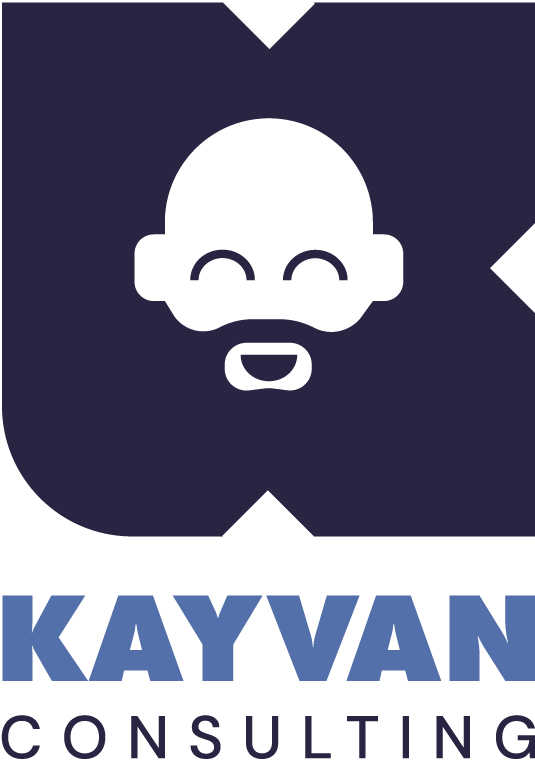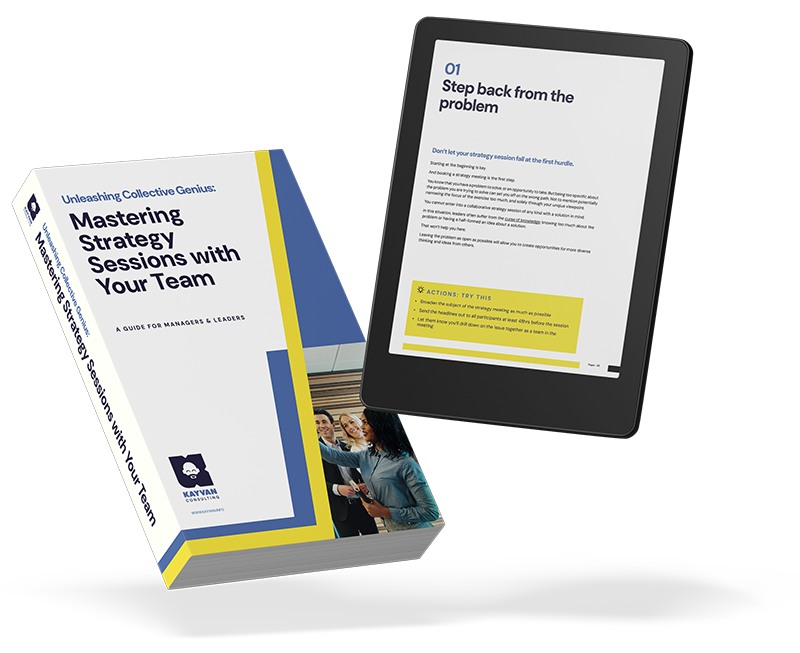Running a business or department can give you the highest of highs and the lowest of lows.
The successes you celebrate are generally a result of your ideas, the decisions you make, and the work you put in. Similarly, you have times when things just don’t work out for one reason or another. And as the leader – you are the one in the firing line.
But of course, you don’t achieve these successes alone.
You have a team of people who help you along the way. They are the ones who execute your vision and help turn your ideas into reality. The faith that they have in carrying out your plans is a result of good leadership, of them buying into your big plans and direction of travel.
But do they know or understand how you are arriving at the decisions that you make?
When (if ever) do they get to experience the decision-making process? Do they get any exposure to the experience of spending hours thrashing out a new direction, tactic or longer-term strategic plan? Do they ever know when you’re just making educated guesses and then owning the outcome?
Generally, they don’t.
At least not until they get promoted to a more senior position within the team. Even then, those who get promoted and are subsequently invited to those strategic discussions might not be comfortable. Or know what to expect.
So the question is – do we have a problem with involving our team in decision-making and strategy?
Does the ego of the founder, CEO, or business leader often get in the way?
Perhaps we believe we’re the only ones who can make the big decisions. We’re the only ones who have the business acumen, experience, and understanding to make the right call. We also might believe that if we let others in on our decision-making processes they will see how we struggle and that this might hurt how they view us as leaders.
Tadaa! Here’s your new strategy!
When changes in strategy or direction are rolled out, decisions have rarely been made without weeks of preparation.
However, team members may not understand why things have changed. They might not buy into the new direction. Often they weren’t even aware of the need for change.
Sure, goal setting through OKRs or your performance management methodology of choice can help align a department or organization. Enacting a strategy, then monitoring it through to whichever measurable outcomes signify success is a surefire route to letting everyone know whether or not we’ve succeeded.
But can the ultimate level of “buy-in” from your wider team occur if they aren’t involved in creating the strategy?
Were we taught this? And do we need to unlearn it?
Whoever told us that only the most senior people should be involved in strategy?
I think I may have missed that class! But I definitely caught up on it afterward at some point. I think….
Let’s be honest – founders may have set the company vision, built or defined the product or service, and then scaled the business to some level of success. But over the years as the company grows, they become further and further away from the day-to-day. Chain of command kicks in and the experiences of the boots on the ground get condensed into easy-to-understand numbers in boxes that senior management can use to make decisions.
The founder is no longer interacting with the people doing the job that they used to do themselves.
But as founders and entrepreneurs, we all started with an idea or some inspiration.
We all looked up to someone who was doing amazing things, differently, and who had self-belief. Nowadays I can’t spend ten minutes on LinkedIn without being fed a video of Steve Jobs in an interview saying something which was groundbreaking or controversial at the time. And the person that posted it is the one who wants to be the next Steve Jobs and disrupt another sector the way he did.
Being in an early-stage startup gives you a ton of experience and exposure to a lot of different scenarios. There’s nothing quite like being scrappy and learning on the job. That’s why generalists thrive in early-stage startups – they’re happy to turn their hand to anything and show an incredible willingness to learn as they go.
Those generalists often go on to be leaders, building their own companies too.
Wouldn’t it be great if we could engineer those qualities into our workforce, no matter the size and scale of the operation?
So some of the questions we should be asking ourselves are:
- How are we contributing to the next generation of leaders within our companies?
- How do we identify potential leaders?
- How do we move them from being an implementer of our strategy to being a driver of strategy?
- How do we teach the next set of leaders how we make good decisions?
- How do we give them the real-life experience of making big decisions that will have a big impact?
Be part of the change with Inclusive Strategy Workshops
The reality is that we are busy, and we’ve always done things this way.
We are focused on the task at hand, and most of us muddle through and make the best decisions we can with the information we have at the time.
But if we want to create a culture of strategic thinking and involve the next generation of leaders in our companies, we need to be more intentional about it.
What if your team were part of the strategic decision-making process for your business? What difference would that make to performance and motivation? How would it affect succession planning if part of the criteria for promotion was that they had participated in and contributed to such strategic discussions?
I propose that we begin running more Inclusive Strategy Workshops.
The idea is that the senior team sets a list of topics and problems to solve that require some level of strategic planning, and then invite select members of the wider organization to participate in those sessions.
Involving your team will help them understand the “why” and “how” of the business. It will help create a more rounded perspective of how the business works. Most importantly it will give them a sense of ownership and responsibility for the success or failure of the company.
It’s important that in these sessions, the senior team remains committed to allowing all participants to have input and take part in the process.
More on how to run a strategy workshop effectively here.
If this becomes difficult, leadership should consider bringing in an experienced workshop facilitator to help set the framework for these sessions. An independent, neutral facilitator will act as a guide for the group, coming equipped with an array of exercises to enable effective collaboration. The group will arrive at decisions they are able to own.
Shaping the future of our workforce by encouraging problem-solving skills
For reference, the World Economic Forum listed the top 10 work skills they expect to be crucial by 2025.
More than half of that list includes strategic and problem-solving skills:
- Analytical thinking and innovation
- Complex problem solving
- Critical thinking and analysis
- Creativity, originality, and initiative
- Reasoning, problem-solving, and ideation
So rather than wait until we need to hire more team members who possess these skills, we can begin looking for these core attributes in the people already in our companies and start building them up so they’re ready to take on more responsibility and leadership positions.
Bringing some of that boots-on-the-ground experience into the war room might just give us a pinch of insight we’d not have gained ourselves.
Maybe it’ll help us identify our next generation of leaders too.




